Normal Math worksheets activities for Ages 4-8
9 filtered results
-
From - To
Explore our engaging Normal Math worksheets designed specifically for children ages 4 to 8. These interactive activities are tailored to build foundational math skills through fun and varied exercises. From mastering basic addition and subtraction to exploring patterns and shapes, each worksheet is crafted to enhance your child's understanding of key math concepts. Our user-friendly platform allows for easily printable resources, perfect for home learning or classroom activities. Foster a love for math early on with our vibrant, age-appropriate worksheets that encourage critical thinking and problem-solving. Equip your young learners with the tools they need for a strong math foundation!
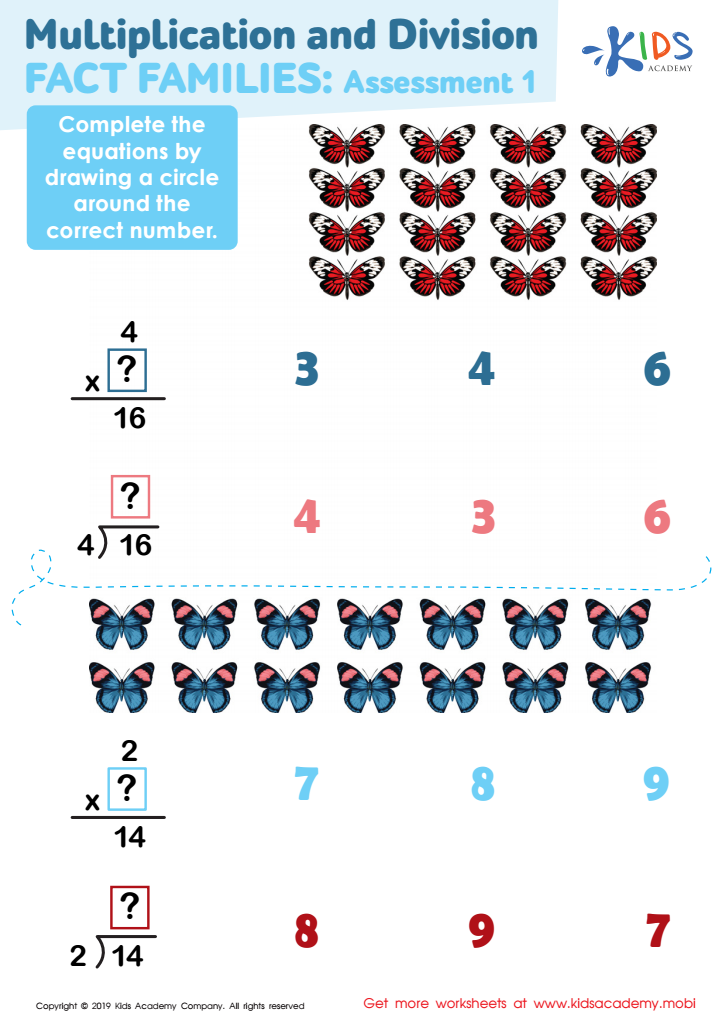

Multiplication and Division Fact Families Assessment 1 Worksheet
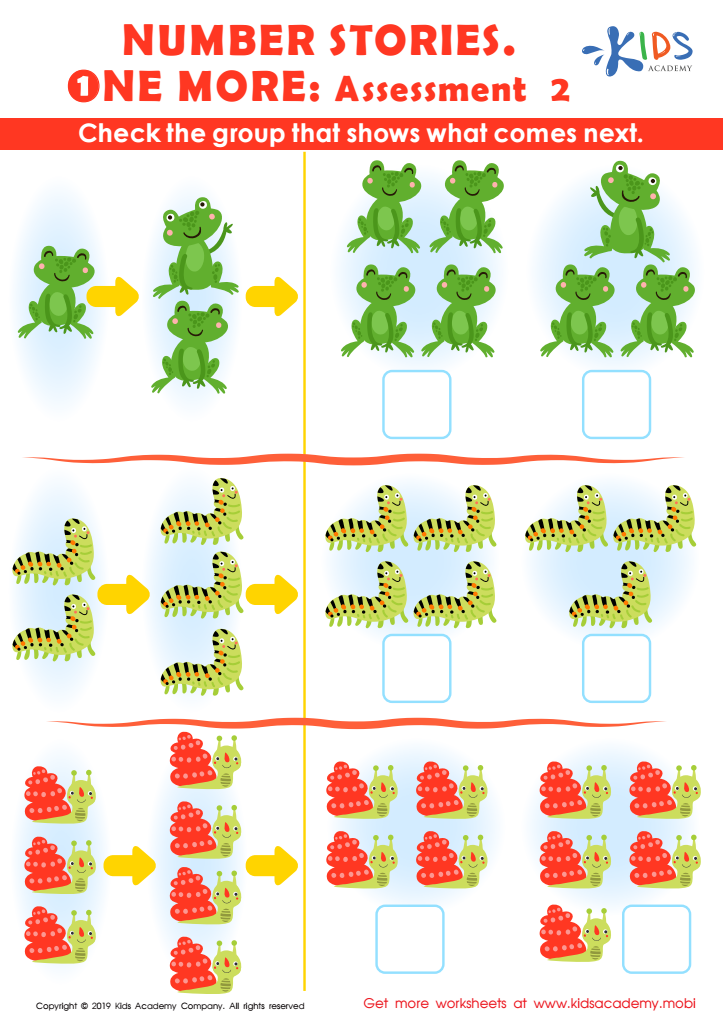

Number Stories One More – Assessment 2 Worksheet
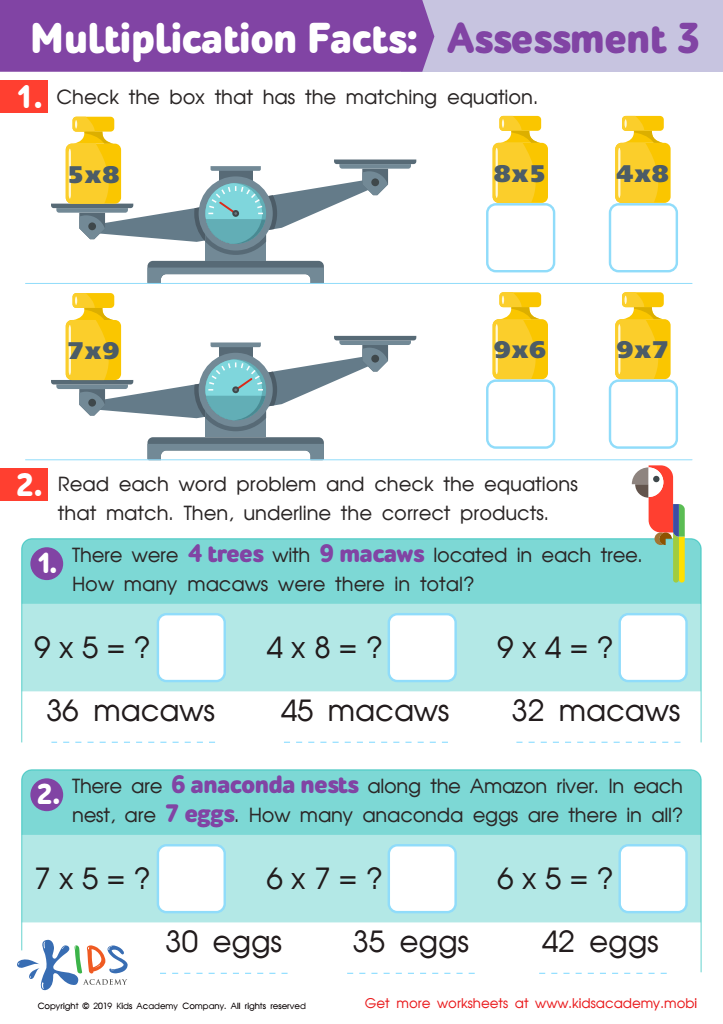

Multiplication Facts: Assessment 3 Worksheet
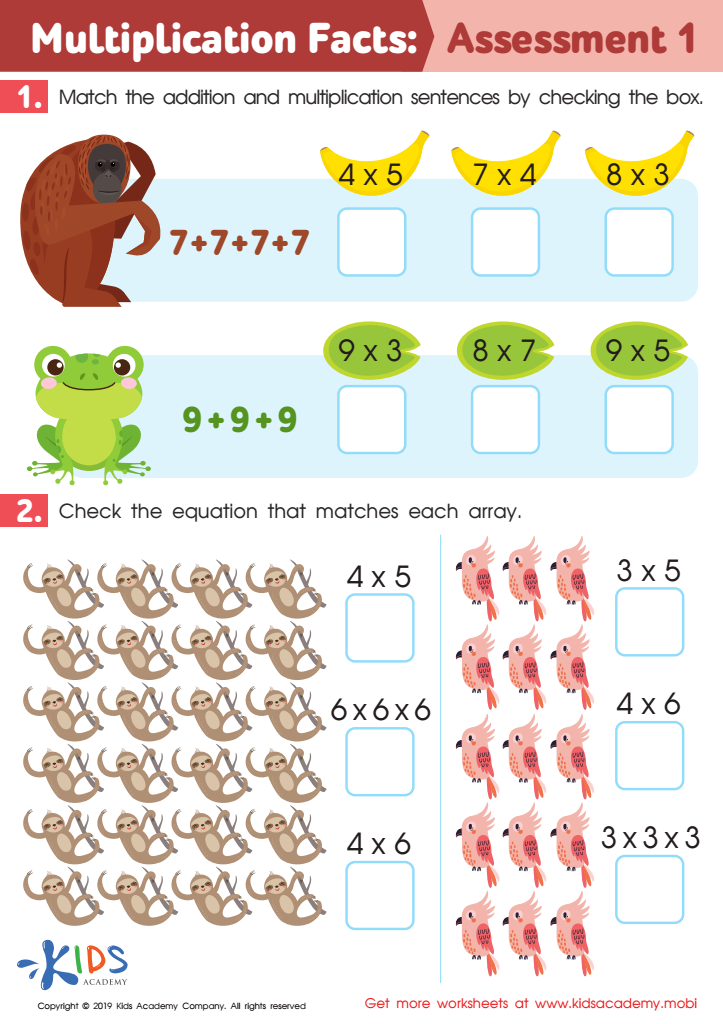

Multiplication Facts: Assessment 1 Worksheet


Word Problems: Assessment 2 Worksheet
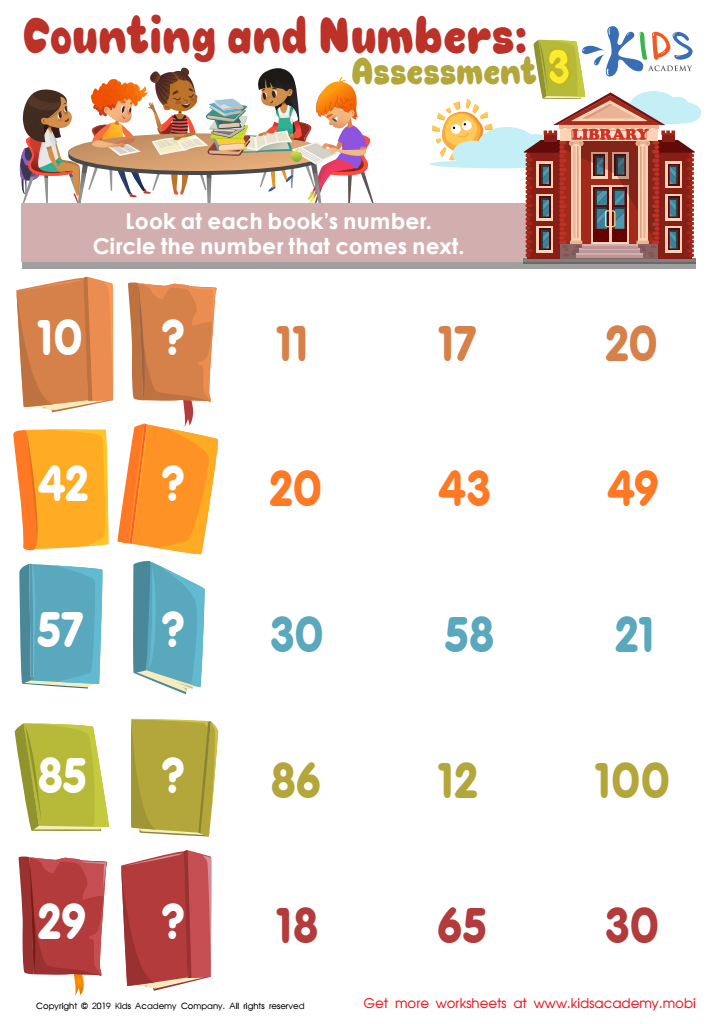

Counting and Numbers: Assessment Worksheet
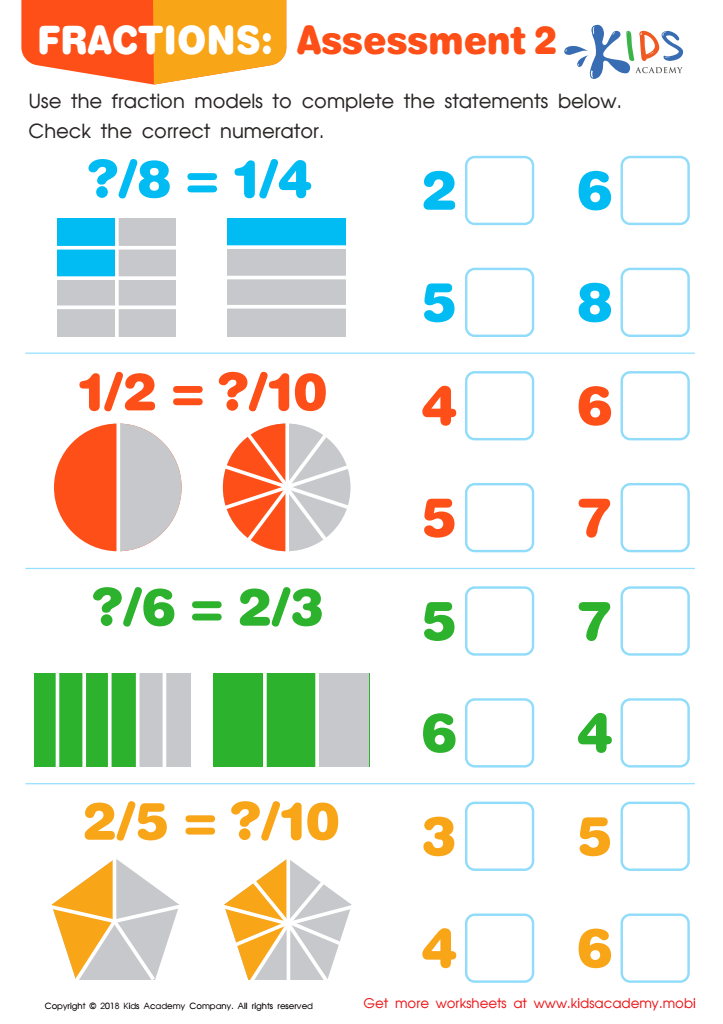

Fractions: Assessment 2 Worksheet
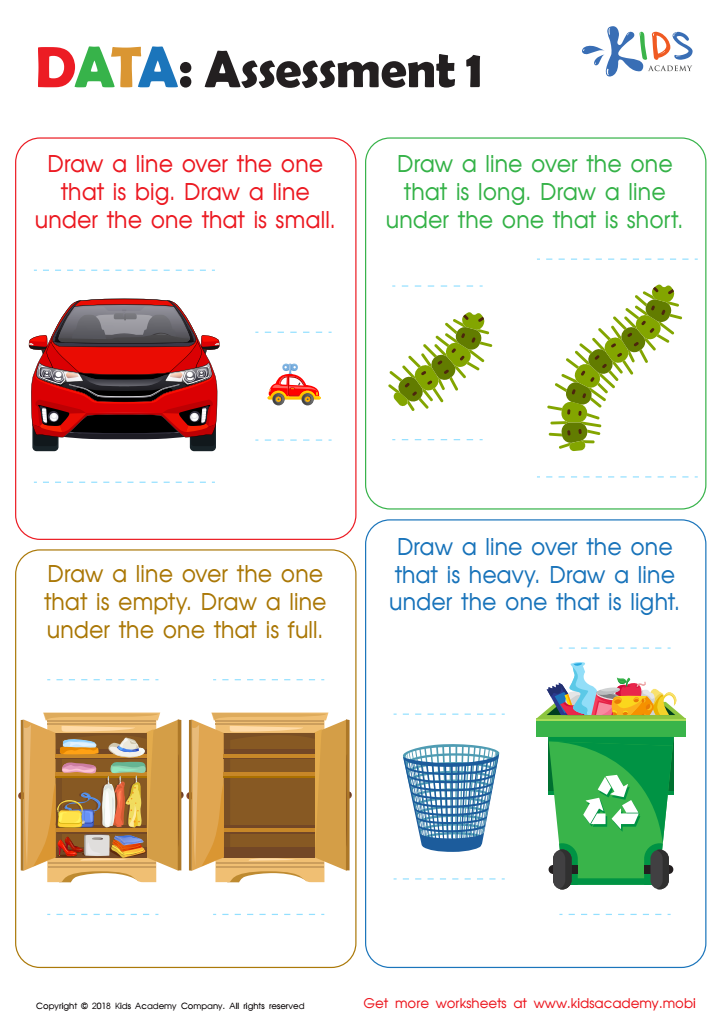

Data: Assessment 1 Worksheet
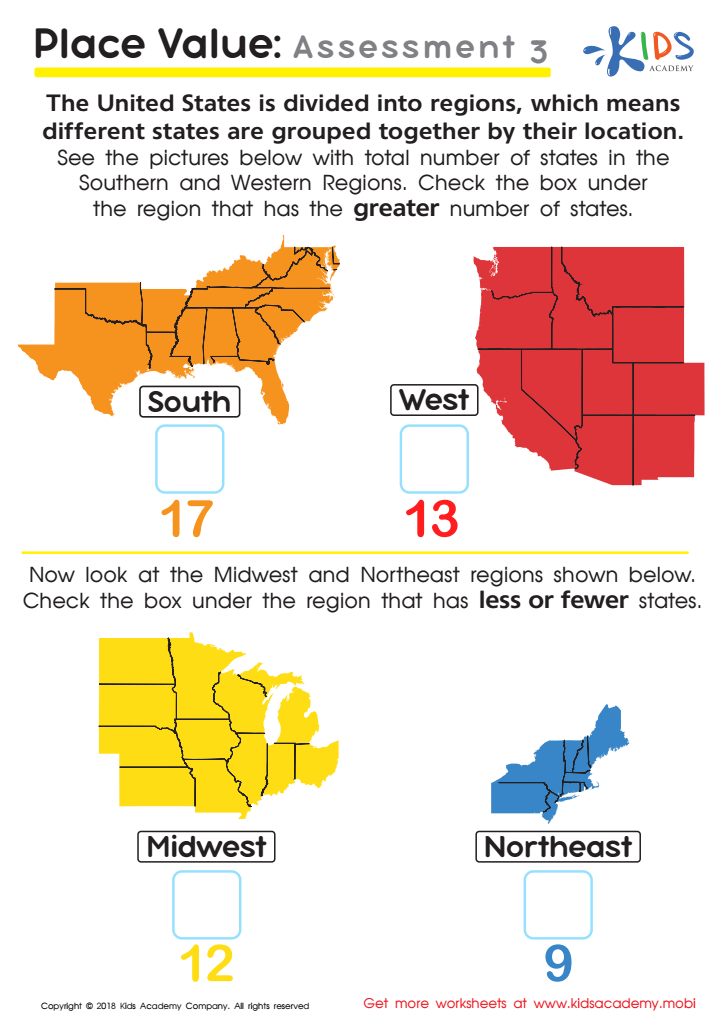

Place Value: Assessment 3 Worksheet
Parents and teachers should prioritize Normal Math activities for children aged 4-8 as they form the foundation for critical thinking and problem-solving skills. At this stage, children are naturally curious and eager to explore concepts, making it an ideal time to introduce early math skills through engaging activities.
Normal Math activities promote number recognition, basic arithmetic, and understanding of shapes and patterns, which are essential for more complex mathematical concepts later on. These activities can be integrated into play, helping to keep learning fun and enjoyable. Engaging with numbers during these formative years fosters a positive attitude towards math, reducing the anxiety often associated with the subject in later grades.
Additionally, Normal Math activities support emotional and social development by encouraging cooperative play, communication, and teamwork. They often involve games that require taking turns and following rules, enhancing social skills while learning.
Ultimately, a strong foundation in math at an early age can lead to improved academic performance, confident self-exploration of mathematical concepts, and prepares children for real-life applications in scenarios like shopping, cooking, and measuring. In short, investing time in Normal Math activities lays the groundwork for lifelong mathematical proficiency and a love for learning.
 Assign to My Students
Assign to My Students




















